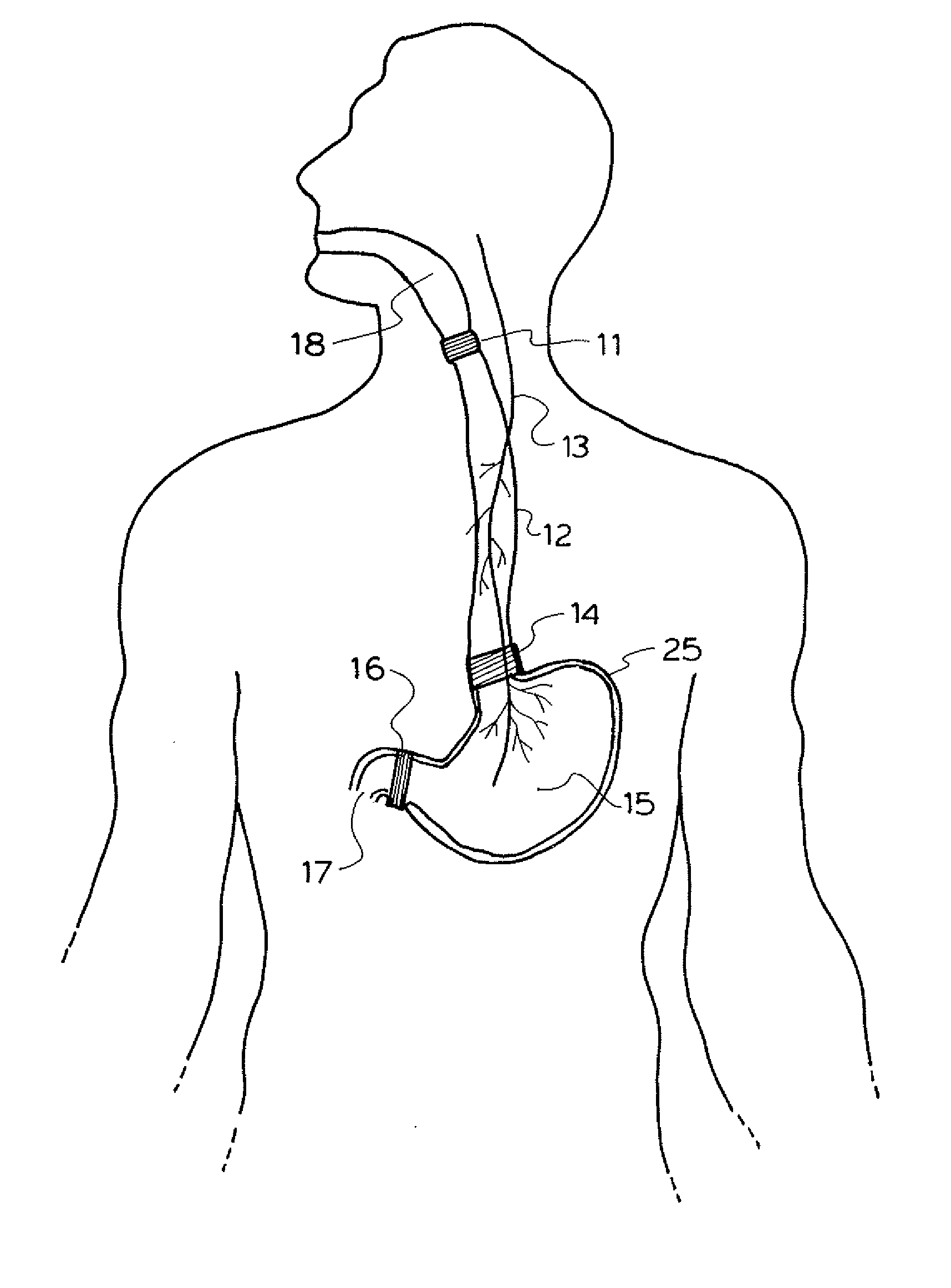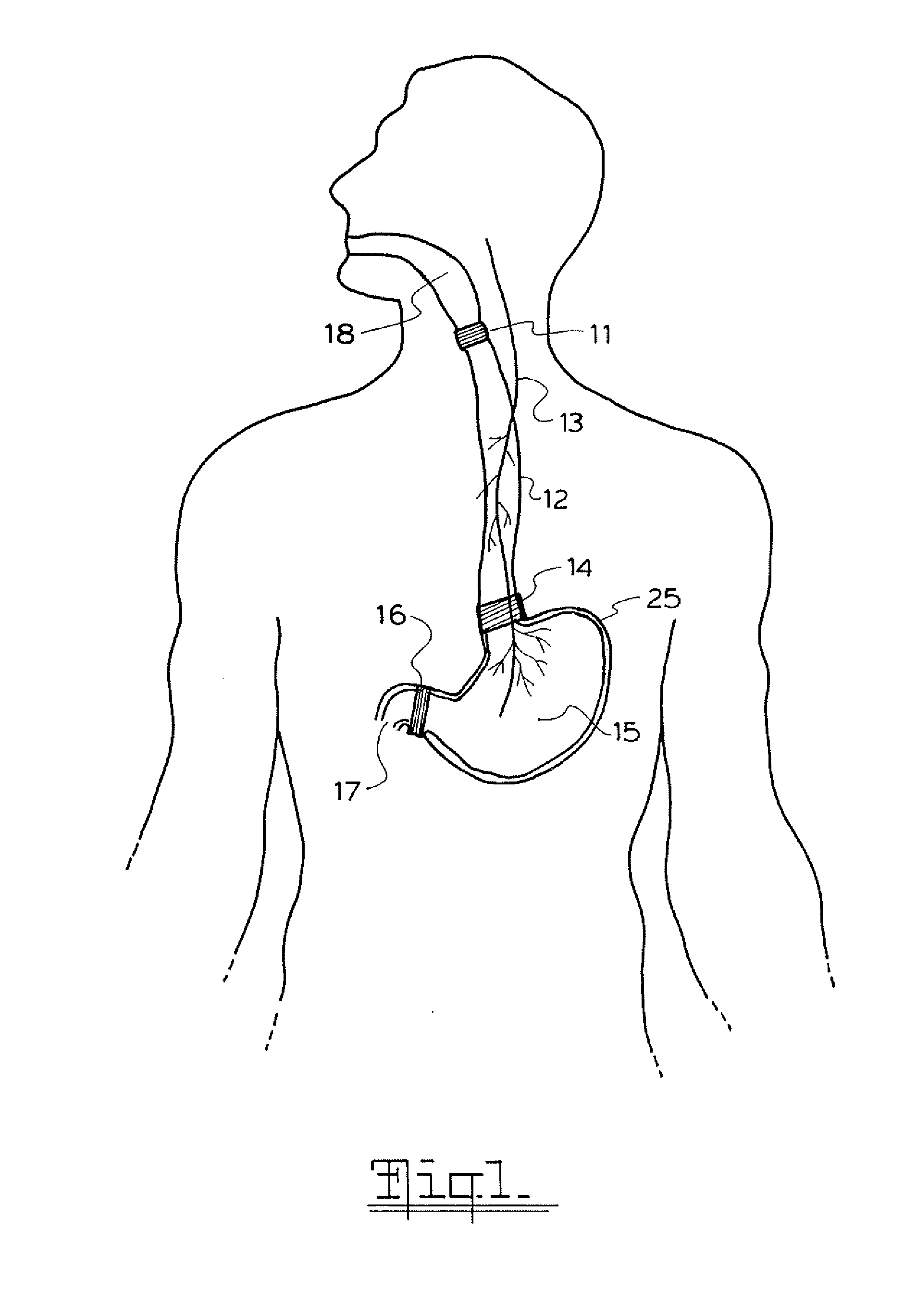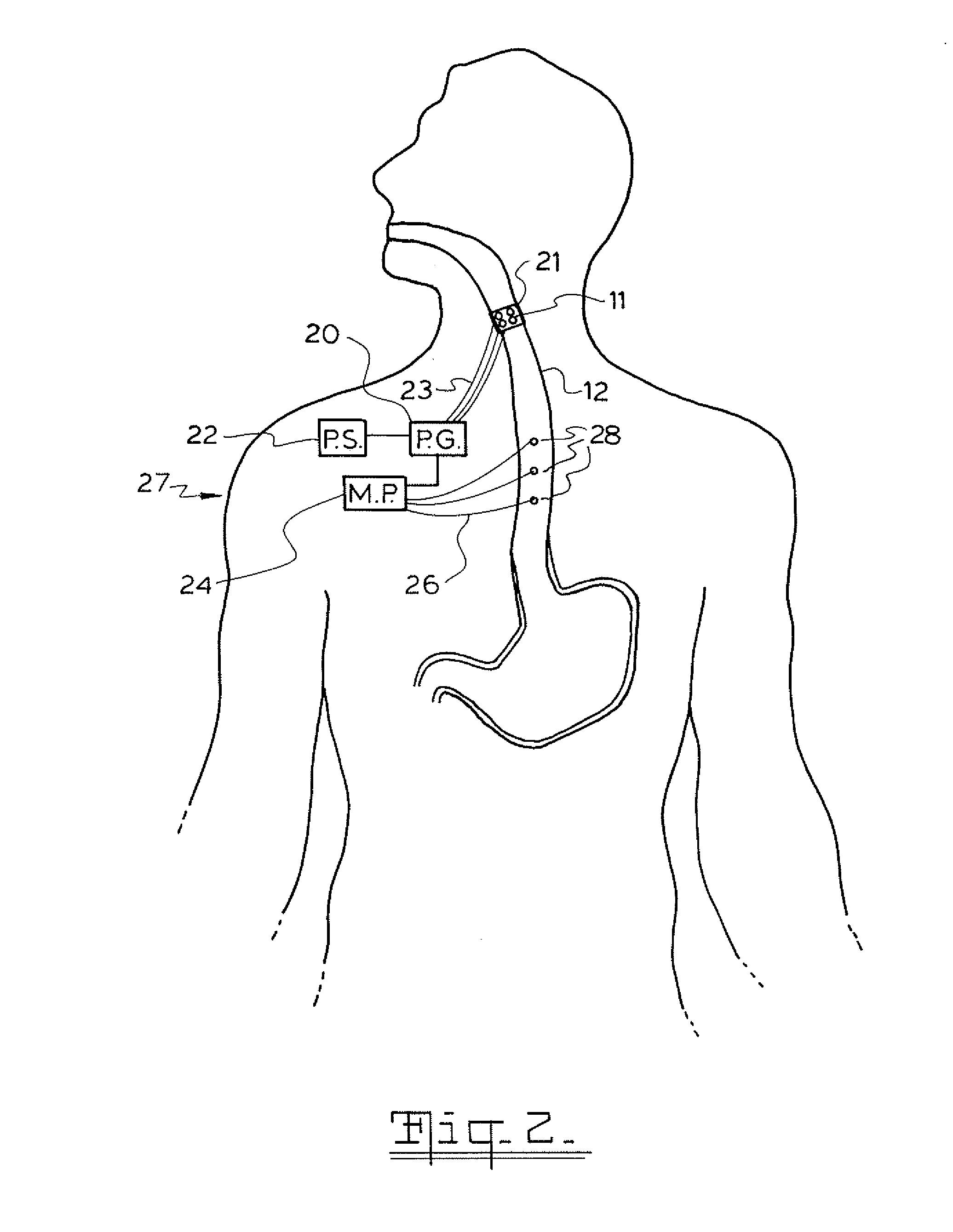Method and apparatus for treatment of the gastrointestinal tract
- Summary
- Abstract
- Description
- Claims
- Application Information
AI Technical Summary
Benefits of technology
Problems solved by technology
Method used
Image
Examples
Embodiment Construction
[0058]Referring to FIG. 1, there is seen a portion of the gastrointestinal (GI) tract, including the upper esophageal sphincter (UES) 11, esophagus 12, lower esophageal sphincter 14, stomach 15, pyloric sphincter 16 and duodenum 17. The UES 11 connects the oropharynx 18 and esophagus 12 and acts as a barrier to impede the passage of oral contents into the esophagus. The UES is contracted and therefore closed in a fasting state and undergoes periods of relaxation during the feeding or swallowing phase so as to allow oral contents to pass into the esophagus.
[0059]The LES 14 connects the esophagus 12 to the stomach 15 and acts as a barrier to impede the passage of esophageal contents into the stomach. The LES also acts to prevent regurgitation of stomach acid contents into the lower esophagus. The LES is contracted in a fasting state and undergoes periods of relaxation during the feeding or swallowing phase so as to allow the esophageal contents to pass into the stomach. The LES is a s...
PUM
 Login to View More
Login to View More Abstract
Description
Claims
Application Information
 Login to View More
Login to View More - R&D
- Intellectual Property
- Life Sciences
- Materials
- Tech Scout
- Unparalleled Data Quality
- Higher Quality Content
- 60% Fewer Hallucinations
Browse by: Latest US Patents, China's latest patents, Technical Efficacy Thesaurus, Application Domain, Technology Topic, Popular Technical Reports.
© 2025 PatSnap. All rights reserved.Legal|Privacy policy|Modern Slavery Act Transparency Statement|Sitemap|About US| Contact US: help@patsnap.com



